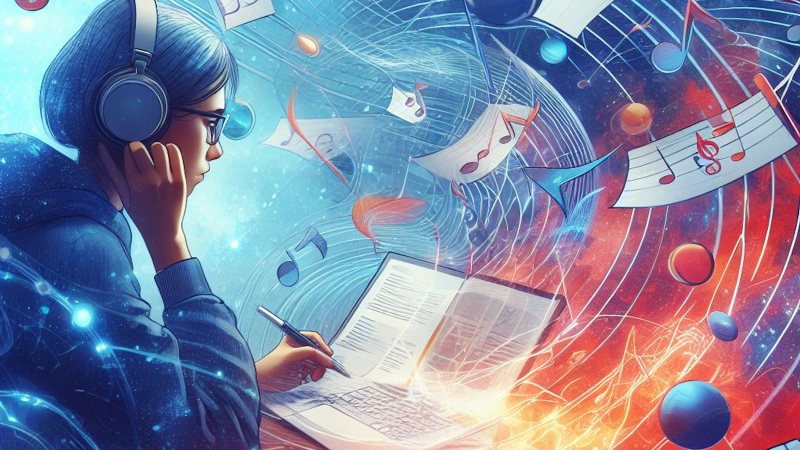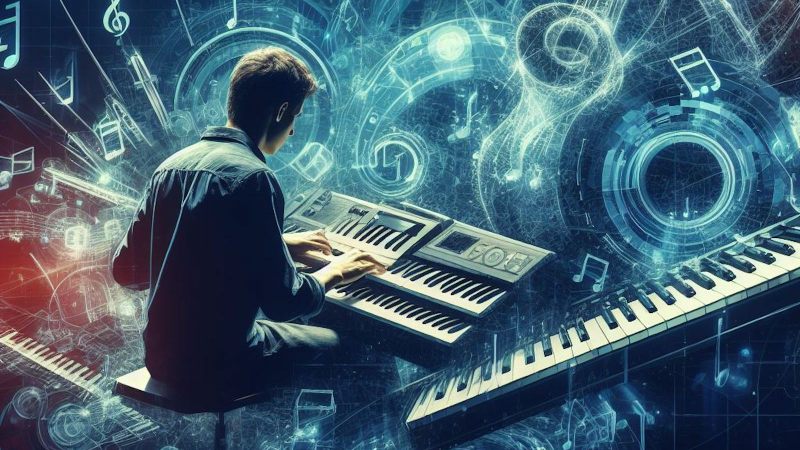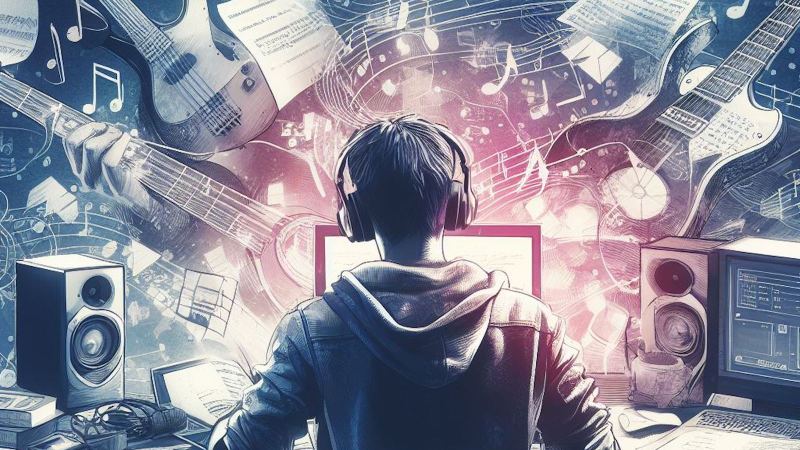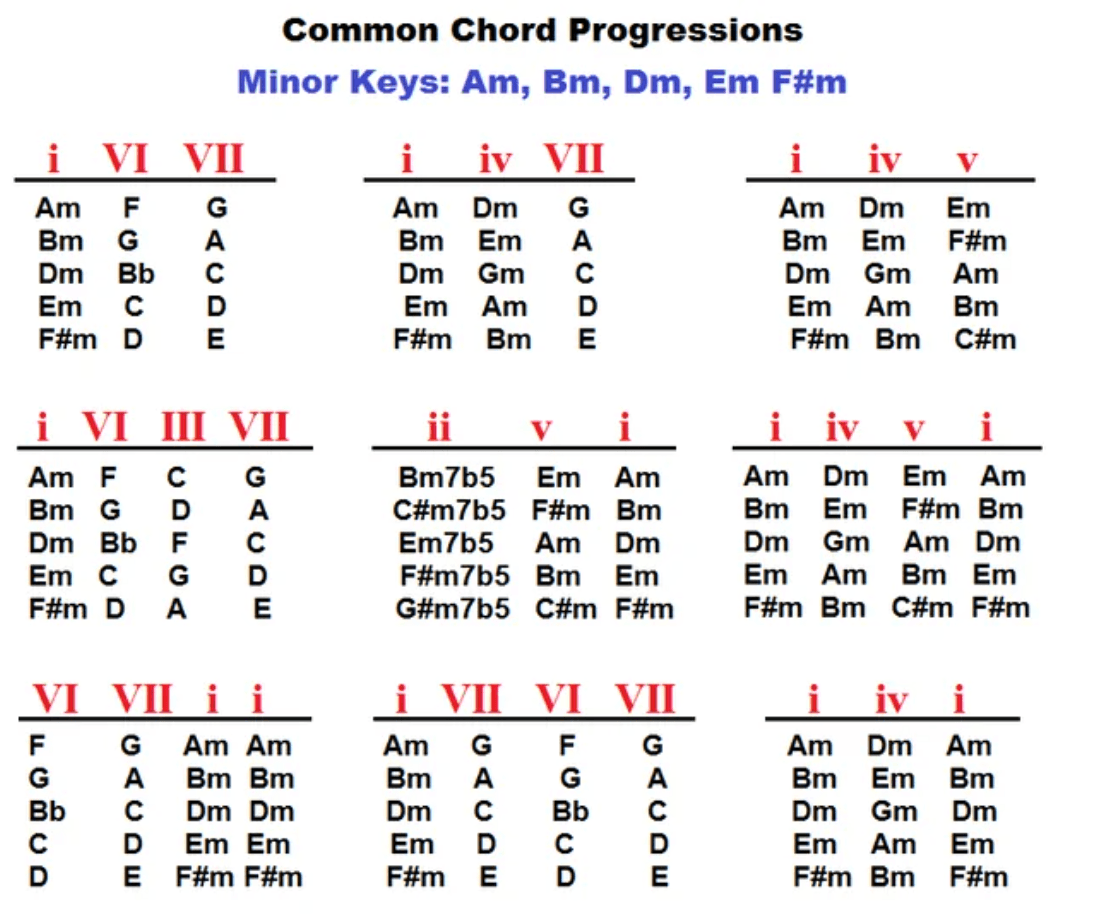In the realm of music education, technology is driving transformative change.
Discover the groundbreaking impact of artificial intelligence (AI) on music education and production, as we explore its powerful tools and their potential to revolutionize the industry.

AI as a Catalyst for Creative Exploration
Within the music industry, deeply rooted in tradition and craftsmanship, the integration of artificial intelligence (AI) has ushered in a profound evolution.
Rather than replacing musicians, AI emerges as a dynamic collaborator, magnifying their artistic capacities.
Here, we delve into the pivotal role of AI tools, becoming essential assets for musicians across the spectrum.
1. Streamlining the Art of Composition
Traditionally, musicians have invested countless hours refining melodies and harmonies. AI, however, introduces a streamlined path to inspiration.
AI-powered composition tools meticulously analyze vast musical databases, deciphering intricate patterns and styles.
They have the capability to generate chords, melodies, and even lyrical concepts, laying the groundwork for musicians to further develop. This not only expedites the creative process but also paves the way for uncharted musical landscapes.
2. Elevating Audio Production
Audio production comprises a multifaceted tapestry of tasks, encompassing mixing, editing, and mastering.
AI-equipped software excels in automating repetitive undertakings, such as noise reduction and equalization.
Musicians can now achieve professional-grade production with heightened efficiency, granting them more time to fine-tune the subtleties of their craft.
3. Precision in Crafting DJ Set Lists
For DJs, crafting the ideal set list is an art form in its own right. AI steps in by meticulously analyzing expansive music collections and discerning audience preferences.
This enables DJs to curate playlists that resonate deeply with their listeners, guaranteeing a seamless transition between tracks and forging a profound connection with their audience.
Also: Check out these 6 AI DJ Tools that are Changing the Music Game
4. Fostering Innovation and Creativity
Arguably, one of AI's most profound impacts lies in its ability to nurture creativity.
By presenting musicians with innovative musical concepts, AI shatters creative boundaries and sparks innovation.
Artists gain the freedom to explore genres and styles they may have never ventured into otherwise, pushing the boundaries of musical possibility.
5. Efficient Workflow Optimization
AI tools extend beyond creativity to enhance efficiency in the music production process.
Musicians can save valuable time by automating administrative tasks like cataloging and tagging music files. This streamlined workflow empowers artists to allocate more of their time to what they cherish most—creating music.
The ascent of AI in the music industry does not foretell the demise of artistic dedication; rather, it amplifies it. Musicians now possess formidable AI allies, guiding them through the ever-evolving realm of music creation.
These tools have emerged as invaluable resources, propelling artists to new pinnacles of creativity and productivity.
Enhanced Learning through Personalization
AI in music education opens the door to personalized learning experiences. By analyzing each student's skill level, musical interests, and learning preferences, AI can tailor lessons to suit individual needs.
This degree of personalization guarantees that learners enjoy the most efficient and captivating educational journey.
Whether you're starting as a novice, delving into the fundamentals of music theory, or an adept musician striving to excel in a particular technique, AI can adjust to your proficiency and learning speed.
Accessible Education for All
One of the most transformative aspects of AI in music education is its ability to break down geographical and financial barriers.
In the past, pursuing a music education often required access to costly music schools or skilled instructors, limiting opportunities for many aspiring musicians. AI-powered music education platforms are changing this landscape.
With an internet connection, anyone, regardless of their location or financial background, can access high-quality music education resources. This democratization of music education levels the playing field, allowing talent to flourish irrespective of circumstance.
Instant Feedback for Continuous Improvement
In the journey of musical mastery, feedback is invaluable. AI brings a new level of immediacy to this process. It can provide instant feedback on musical performance, from pitch accuracy to rhythm precision.
This immediate evaluation empowers students to pinpoint areas that require enhancement with remarkable precision, facilitating a more efficient refinement of their skills.
Whether you're rehearsing a new piece, perfecting your technique, or gearing up for a performance, AI's instant feedback guarantees that you're consistently progressing on your path to improvement.
Interactive Learning and Engagement
AI-driven music education platforms are designed to engage students actively. Through interactive lessons, quizzes, and practical exercises, learners are immersed in the world of music.
AI can adapt content based on a student's progress, challenging them at the right level without overwhelming or underwhelming.
This interactive approach fosters a deeper understanding of music theory, instrument techniques, and composition, making the learning process more enjoyable and effective.
Exploring Musical Diversity
AI can expose students to a wide range of musical genres and styles. By curating personalized playlists and recommending diverse musical pieces, AI encourages exploration beyond one's comfort zone.
This exposure not only broadens musical horizons but also sparks creativity and inspiration.
Whether you're interested in classical, jazz, rock, or electronic music, AI can introduce you to new sounds and ideas.
Efficiency and Time Management
For those with busy schedules, AI's efficiency is a game-changer. It allows students to make the most of their practice time. AI can analyze practice sessions, identify weak points, and suggest targeted exercises for improvement.
This level of optimization ensures that every minute spent practicing is highly productive, helping students achieve their musical goals more efficiently.
Music Theory Mastery with AI
Music theory serves as the foundation of musical understanding, and AI plays a pivotal role in making this intricate subject accessible to learners of all levels.
AI-powered music theory lessons cover a broad spectrum of topics, from the basics of scales and chords to advanced concepts like harmony and counterpoint.
Whether you're a beginner trying to grasp the fundamentals or an advanced musician seeking to deepen your theoretical knowledge, AI offers engaging and comprehensive lessons. Imagine having an AI tutor at your side, guiding you through the intricacies of music theory with personalized exercises and explanations.
Instrumental Proficiency Unleashed
Learning to play a musical instrument is a journey filled with challenges, and AI is here to support every step of the way. AI-driven instrumental lessons are not limited to beginners.
They cater to musicians at all skill levels, providing a wealth of resources for those looking to master a new instrument or refine their existing skills.
From interactive tutorials on finger placements and bowing techniques for string instruments to precision exercises for piano virtuosos, AI ensures that learners receive expert guidance and real-time feedback, fostering their instrumental proficiency.
Unlocking the Art of Songwriting
Songwriting is a highly creative yet often daunting endeavor for many musicians. AI offers a helping hand in this domain by assisting in the composition process.
AI-driven songwriting tools can suggest chord progressions, melodies, and even lyrical ideas, igniting the creative spark within artists.
For example, if a songwriter encounters a creative block, AI can generate fresh musical ideas, providing the inspiration needed to break through the barrier.
Whether you're crafting heartfelt ballads or experimenting with avant-garde compositions, AI is a versatile companion in the songwriting journey.
Exploring Diverse Genres and Styles
AI's teaching capabilities extend beyond the basics. It can expose learners to a diverse array of musical genres and styles. Imagine exploring classical compositions, jazz improvisation, or electronic music production with the guidance of AI.
AI-curated playlists, lessons, and exercises open doors to musical worlds you may have never ventured into otherwise.
This exposure not only broadens your musical horizons but also fosters a deeper appreciation for the richness of musical diversity.
Comprehensive Music History Lessons
Understanding the historical context of music is crucial for musicians and music enthusiasts alike. AI can offer comprehensive lessons on music history, taking you on a journey through different eras, styles, and influential composers.
By exploring the the evolution of music, learners can understand musical concepts on a deeper level and gain new insights and appreciation.
Music Production Techniques
AI isn't limited to teaching just the performance aspects of music. It can also delve into the realm of music production. AI-driven tutorials can guide you through the intricacies of audio engineering, mixing, and mastering.
Whether you're looking to produce your music or enhance your understanding of the production process, AI serves as a valuable resource.

AI Music Education Platforms
In today's digital age, AI music education platforms are reshaping the landscape of musical learning.
These innovative platforms harness the power of artificial intelligence to provide aspiring musicians with personalized, accessible, and engaging resources.
From composing original music to mastering instruments, these platforms offer a wealth of opportunities for musical growth.
In this section, we'll delve into some of the noteworthy AI music education platforms, each offering its unique set of tools and expertise to help you embark on your musical journey.
1. Skoove: Mastering the Piano with AI
For those on a quest to conquer the piano, Skoove offers an AI-driven solution. Skoove's interactive piano lessons are designed to accommodate learners of all levels, from absolute beginners to advanced players.
AI algorithms analyze your performance in real-time, providing feedback on your timing, finger positioning, and overall accuracy.
These tailored lessons cover everything, from fundamental scales and hand placements to intricate pieces by classical and contemporary composers. Skoove's adaptability ensures that you progress at your own pace, gradually tackling more complex repertoire as your skills advance.
It's a virtual piano teacher at your fingertips, offering convenience, personalized guidance, and a pathway to piano mastery.
2. Melodics: Elevating Electronic Music Skills
Electronic music production is an art form that demands precise timing and rhythm. Melodics steps in to elevate your electronic music skills, particularly in the realm of finger drumming. Geared towards both beginners and experienced producers, Melodics employs AI-driven lessons and practice exercises.
These modules cover a spectrum of electronic music genres, from hip-hop beats to intricate drum patterns for electronic dance music.
The AI component provides real-time feedback on your timing and accuracy, helping you refine your skills and develop a solid foundation in electronic music production.
Melodics is the go-to platform for those aspiring to create infectious electronic rhythms and beats, and it paves the way for a vibrant career in electronic music production.
3. Yousician: All-in-One Music Education
Yousician is a music education platform that employs AI to teach various instruments, including guitar, piano, bass, ukulele, and singing. It caters to learners at all levels, from absolute beginners to advanced musicians.
Yousician offers interactive lessons, exercises, and a vast library of songs to play along with. The AI component evaluates your performance in real-time, offering feedback on timing, accuracy, and technique.
Whether you're learning to strum your first chords or aiming to master complex solos, Yousician adapts to your skill level and provides a structured learning path. It's a comprehensive tool for multifaceted musicians seeking to excel in their chosen instrument.
4. Soundbrenner Core: The AI Metronome
Soundbrenner Core, while primarily known as a smart metronome and tuner, utilizes AI to enhance musicians' practice routines. This wearable device offers precise metronome functions, vibrating to provide tempo cues.
The AI-driven component adapts to your playing style and helps you maintain a consistent tempo, a crucial aspect of musical performance.
Whether you're a soloist or part of an ensemble, Soundbrenner Core ensures that your timing remains impeccable, helping you become a more polished musician.

Benefits of AI in Music Education
1. Lower Costs: Affordable Music Education
One of the most significant advantages of integrating AI into music education is its potential to significantly reduce costs. Traditional music education often involves expensive instrument lessons, sheet music, and tuition fees. In contrast, AI-driven platforms typically offer affordable alternatives.
This democratization of music education opens doors to countless individuals who may have been deterred by the financial constraints of traditional learning.
With AI, you can access high-quality music education without breaking the bank, making it an inclusive choice for learners of all backgrounds.
2. Access for Everybody: Music Education Without Barriers
AI in music education is a powerful equalizer. It eliminates geographical and financial barriers that may have hindered individuals from pursuing their musical passions.
Whether you're in a bustling city or a remote village, AI-driven platforms offer universal access to comprehensive music education.
From young beginners to seasoned musicians, AI welcomes learners of all backgrounds, ensuring that nobody is excluded from the joy of creating music. It's a transformative shift that's revolutionizing the way music is learned and appreciated.
3. Efficiency and Progress: Personalized Learning
AI's contribution to music education goes beyond cost savings—it enhances the learning experience itself. AI-driven platforms provide personalized lessons tailored to individual skill levels and learning preferences.
This means that students can progress at their own pace, focusing on areas where they need improvement.
With AI's instant feedback, learners can pinpoint their weaknesses and refine their skills more efficiently.
Whether you're practicing scales, mastering a complex piece, or honing your improvisation techniques, AI ensures a more effective and fulfilling learning journey.
4. Infinite Inspiration: AI as a Creative Muse
For aspiring musicians and composers, AI serves as an endless source of inspiration. AI-generated music and composition suggestions can break creative barriers and ignite fresh ideas.
Musicians often encounter creative blocks, but AI can provide unique chord progressions, melodies, and lyrical concepts that spark creativity. It's akin to having a musical collaborator who constantly offers innovative suggestions.
This infusion of creativity ultimately enhances musicians' output, enabling them to explore new horizons and push the boundaries of their craft.
5. Flexible Learning: Music Education on Your Terms
AI-powered music education platforms offer flexibility that traditional methods struggle to match. Whether you're a student with a busy schedule, a working professional, or a parent juggling multiple responsibilities, AI accommodates your lifestyle.
You can practice and learn music whenever and wherever you prefer, be it at home, during breaks at work, or while commuting.
AI empowers individuals to integrate music into their lives seamlessly, ensuring that learning doesn't become a burdensome task but rather an enjoyable and adaptable pursuit.
Empress - Your Gateway to Musical Innovation
Are you ready to unlock the full spectrum of your musical potential? With Empress, the future of music education is at your fingertips. Explore the transformative power of AI-driven learning, personalized lessons, and creative inspiration!
FAQs: AI Music Education
Q1: How can AI enhance music education?
AI can enhance music education by providing personalized lessons, instant feedback, and creative inspiration to learners of all skill levels.
Q2: Do AI music tools replace traditional music education?
AI tools complement traditional music education, offering additional resources and support to musicians rather than replacing conventional methods.
Q3: What are some AI music education platforms to explore?
Some notable AI music education platforms include Amper Music, Skoove, and Melodics, each offering unique resources and experiences.
Q4: Is AI music education suitable for beginners?
Yes, AI music education is well-suited for beginners, as it can provide step-by-step guidance and adapt to individual learning needs.
Q5: Can AI help with songwriting and composition?
Absolutely! AI can assist with generating chord progressions, melodies, and lyrical ideas, serving as a valuable tool for songwriters and composers.
Follow the future of music with Empress. Check out our blog to learn how you can effectively use these AI music tools.


